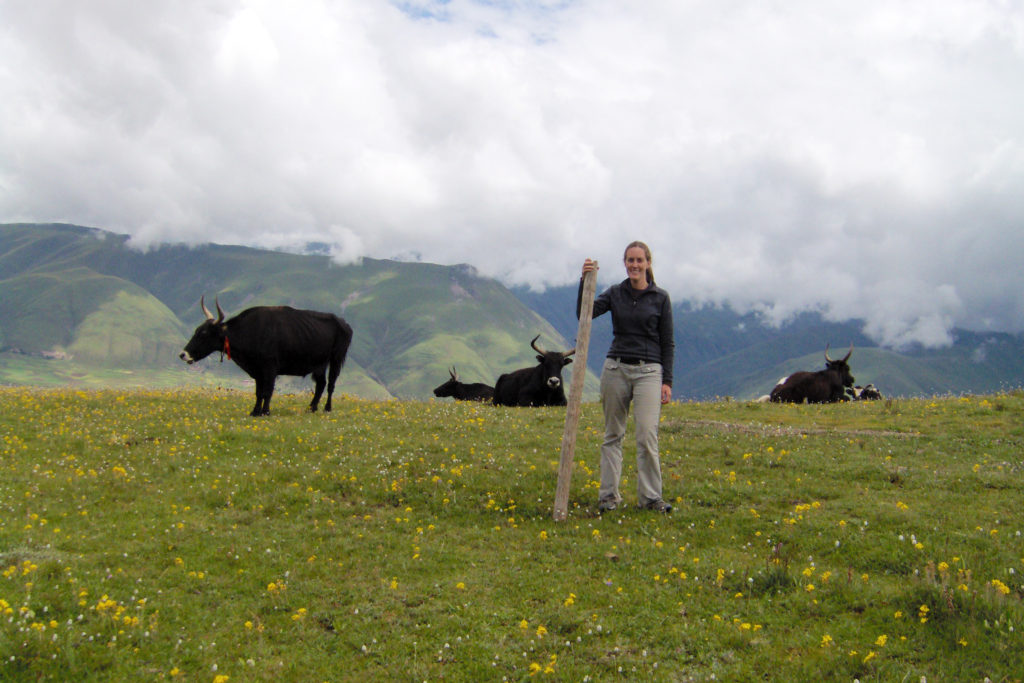
Missionary Life
How to Avoid Burnout and Thrive on the Mission Field
June 5, 2017
by Deb Wyss

I had been on the mission field for 10 months. I was holed up in one of the few less-than-desirable guest houses in a remote East Asian mountain town.
I was relentlessly vomiting from food poisoning, and there was only one public outhouse for all of the guests’ bathroom needs. There was no running water. And I could hear the rats scurrying in the walls.
I was miserable.
I remembered the romantic visions that filled my head as I prepared to go to the mission field. The excitement that bubbled out of me at the mention of this faraway place with exotic people and gorgeous landscapes. The physical burden my heart and body carried for these lost ones to know the one true God.
Those things had carried me for a while. But the beauty of it all was fading, and fading fast. I was tired.
How was I going to make it for the long haul?
When I was well enough, I stumbled out to the grasslands to get some fresh air.

I quickly realized that the mission field of my dreams wasn’t my reality. I had to reframe my thinking and adopt new practices if I was going to thrive overseas. Photo courtesy of Deb Wyss
The massive snow mountains exploded out from the lush, rolling green hills, and horses decked in colorful ribbons dotted the pastures filled with wild flowers. I was living my dream. But I wasn’t so sure I wanted to be.
I rested my weary head in my hands and cried.
And then.
His sweet whisper. “For the joy set before Him, He endured the cross.”
He endured.
That’s what I needed to hear in that moment because that’s all I was doing at that moment: enduring. And Jesus had moments like that as well.
And just a few days after my very low, low, I had some wonderful highs.
I joined a group of four villagers herding yaks for the day. I sincerely enjoyed the company. Making real connections for the sake of the Gospel as we cooked over an open flame at the mouth of a cave. Belting out hymns on a plateau that had never had the name of Christ spoken there before.

God used an outing with locals to reenergize me when I needed it most. Photo courtesy of Deb Wyss
There was nowhere else in the world I would have rather been at that moment. It was a gift that carried me through that low period.
Over the next seven years, I experienced it all. Periods of balance in life. Periods of extreme fatigue, completely worn out and broken. Periods of floundering. And periods of thriving.
So, how do we keep ourselves healthy when serving overseas? What are some practical things we can do to thrive on the mission field?
1. Set goals.
Often on the mission field, there is no boss delegating tasks and no one following up on your work.
A specific plan is vital. Set measurable goals, and work toward them.
Keep a short list of prayer requests that reflect your goals somewhere you will see daily. Pray until you can cross your goal off the list. (For example: Make five new, local friends.)
2. Have a routine.
This may sound ridiculous to anyone who has spent time on the mission field. (An enduring joke is the only thing certain in missions is that nothing is certain.)
But spending time, day after day coming up with ideas and plans about how to order your day without a concrete schedule is exhausting. For anyone.
Ordering your weeks gives rhythm and routine to life, which generally makes people feel like they can manage better and also is almost always more productive.
3. Reflect. Regularly.
Every six months, sit down and write a list of all of the things you’ve seen God do.
In the day-to-day, it’s hard to see progress. But when you take a chunk of time and look back, you will be encouraged. It will bolster your faith. It will push you to keep walking forward.
4. Have someone in it with you.
Having someone who gets your situation, you enjoy talking to and who cares about the outcome of your ministry as much as you do is so helpful. Without this, you will wear down more quickly.
For married couples, this often turns out to be your spouse, and that’s great. Be intentional about debriefing the nitty-gritty of ministry life with each other, but don’t vent.
For single missionaries, the most important thing to look for is someone who wants to listen to you talk about details. It may be a teammate, but it may be someone back home with whom you have regular Skype calls.
One of my most helpful relationships was with a woman from another country who was 30 years older than I was. Although she had never met a single one of my contacts, she kept a binder with all of their pictures and wrote notes about each one of them on their respective pages.
5. If you’re tired often, pay attention.
You are probably not in a healthy place. Figure out why, and make changes.
Fatigue often comes from having too many irons in the fire. Consciously make a decision to decrease your activities for a while. Have a second party help you if you feel like you don’t know how. Inability to make decisions is a big red flag that something is not right.
Often, simple things like eating right, exercising and getting good sleep can make you feel better quickly. Don’t neglect your physical health.
If you are dealing with weighty issues, make sure that you have someone outside the situation that you can talk with.
6. Take up a hobby.
It’s best if this hobby is something you can do in the community with locals. But, more importantly, it must be something you genuinely enjoy. It may be basketball at local university courts, or it may be an art class.
Being you rather than the role you are given in ministry is beneficial for not only yourself but also for those you have come to serve.
Pursuing a hobby gives you a moment to let your guard down.
It’s a chance for them to just enjoy the person God created you to be, without placing expectations on yourself.
A hobby will grow your love for the place and the people. If you find it hard to engage in activities the locals enjoy, daily life can become a drag very quickly.
7. Remember that you are a foreigner.
As much as you strive to fit in with the local culture, you cannot become them. You are different. They know it. And it’s ok!
You’re going to need time to practice familiar traditions. For me, that meant “American” pizza and movie nights. A holiday celebration without locals. Or a cup of coffee and a light novel.
8. Take time off to rest.
If possible, leave the country to do this. Leaving will refresh you in a deeper way. It will give you perspective. It will fuel you for the long haul.
If it’s not possible to leave the country, create a tradition of “getting away” in-country. Make it a yearly practice, something you look forward to. Head to another city where no one knows you. Go exploring, hunker down in your hotel room, eat some yummy food. Whatever sounds relaxing to you.
If traveling can’t happen, block off a week on your calendar to rest as best you can. Don’t do any of your normal activities. Make a plan for how you want to rest, so that you don’t spend your week wondering what to do with yourself!
9. Practice thankfulness.
Missionaries have an easy slide into complaining. The weather, the dirt, the food, the harsh life. The more you talk about it, the worse it feels.
Instead, be thankful. Write down something you’re thankful for every day, or make it a practice to share a grateful thought at dinner. Be conscious about not grumbling.
10. Remember your job description.
Your job is to speak truth. Only God can change hearts. Sow seeds. Water. Trust God for the increase in His timing and His way. Relax into His plans and purposes.
May the joy of the Lord be your strength as you carry on!
Looking for even more resources on missionary life and how to thrive on the mission field? Follow TEAM’s Pinterest boards to get informed and inspired.

